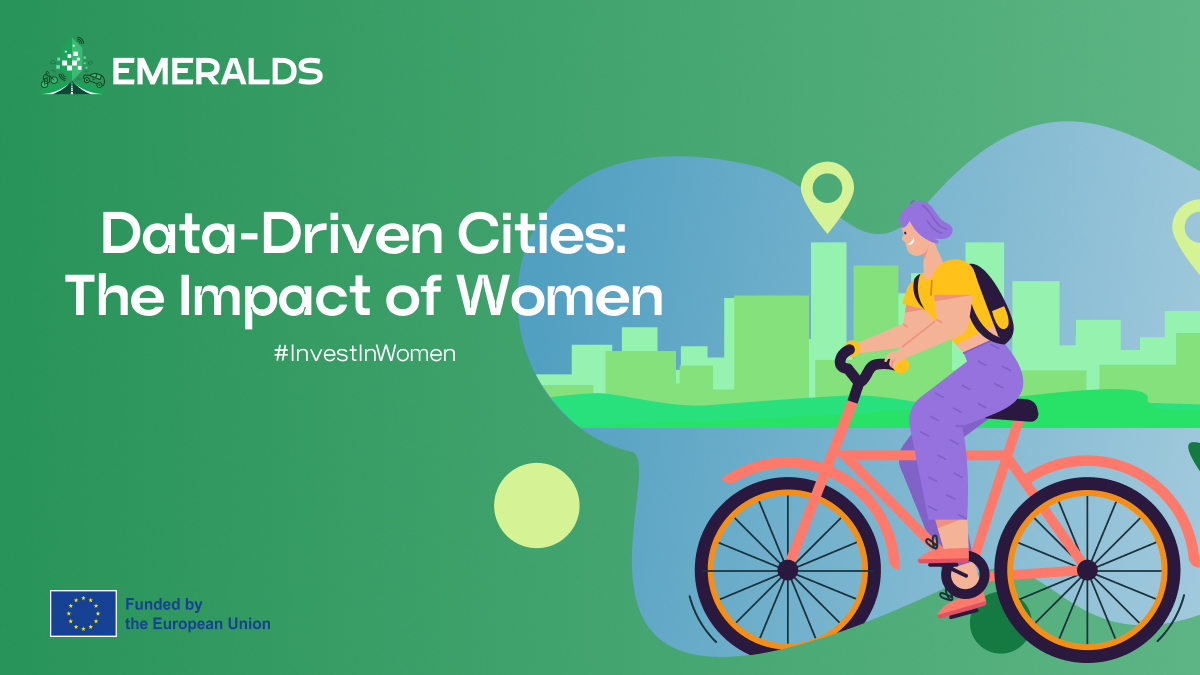In today's rapidly urbanising world, where data-driven solutions have the power to shape the future of urban mobility, it is crucial to consider the impact of women in designing inclusive cities. The diverse needs and perspectives of women play a significant role in how urban environments are navigated and experienced. As cities strive to become more inclusive, the integration of data-driven approaches becomes extremely important. On International Women Day, today we look at mobility and urban mobility data from a gender perspective.
Women are hugely under-represented across STEM fields, and the Data industry is no exception – as things stand, male Analysts and Data Scientists outnumber their female colleagues 4 to 1. Addressing this imbalance isn’t just the right thing to do ethically. Data shows that everything from workplace satisfaction, to business profitability significantly improve when an organisation strives for greater diversity and inclusivity.
Additionally, traditional urban planning often prioritised the needs of men, neglecting the specific challenges faced by women in their daily urban journeys. Women tend to have multiple stops throughout their trips, considering factors such as safety, accessibility, and convenience. According to a study carried out by the Woman Forward Foundation, 40% of women's mobility is conditioned by reasons associated with, assumed or assigned by gender roles (childcare, domestic work or caring for the elderly).
Fortunately, initiatives promoting gender-inclusive urban design are gaining traction. European networks of cities are sharing best practices and experiences to create more appealing, sustainable, and attractive urban environments. Cities like Milan, Barcelona, and Paris are leading the way with their efforts towards better sustainability and environmental support. Smaller-scale settings are also making strides, with examples like the municipality of Umeå in Sweden. Umeå has implemented a planning-by-design approach, creating infrastructure that focuses on safety and welcoming spaces for women, such as the Lev! tunnel and the "Frizon" outdoor environment designed for young girls' needs.
As we strive for data-driven cities, it is crucial to recognise the impact of women in shaping urban mobility. At EMERALDS we are at the forefront of advancing data-driven urban mobility. Our project focuses on developing a Mobility Analytics as a Service (MAaaS) toolset that leverages extreme-scale urban mobility data to enhance decision-making processes. This toolset goes beyond simply collecting data by ensuring data quality, privacy, and advanced data analytics capabilities. By analysing data, EMERALDS aims to provide meaningful knowledge and insights to transportation engineers, urban planners, policy-makers, and urban data scientists. Therefore, the higher level of understanding of urban mobility data, and their application into the decision phase of cities mobility planning, can include the women's perspectives, leading to safer, more accessible, and emotionally satisfying urban environments for everyone. By harnessing the power of data and considering diverse needs, we can create cities where women can thrive, participate, and contribute to the visionary and sustainable cities of the future.
